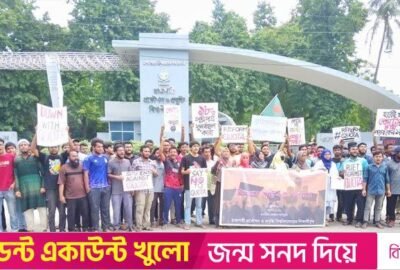As Prime Minister Narendra Modi has already been sworn for a historic third term, India’s political landscape, both domestically and internationally, stands at a critical juncture. Despite the Bharatiya Janata Party’s (BJP) failure to secure an outright majority in the recent national elections, the party’s coalition with regional allies under the National Democratic Alliance (NDA) ensures Modi’s continued leadership. This development not only marks a significant moment in Indian politics but also underscores the nation’s evolving role as a global power that commands attention and respect on the international stage.
The 2024 national elections in India were closely watched, with observers and exit polls predicting a decisive majority for the BJP. However, the results revealed a different reality: the BJP fell short of a majority, necessitating a coalition with regional parties to form the government. This outcome, while a setback for the BJP, is not expected to materially affect governance under Modi. His address at the BJP headquarters post-results emphasized continuity and resilience, with a clear message that his vision for India’s future remains unchanged.
Modi’s foreign policy approach, characterized by strategic autonomy and multipolar engagement, is expected to persist. The BJP’s election manifesto was succinct on foreign policy, focusing on infrastructure development along the India-China border, security cooperation with Indo-Pacific countries, and India’s aspirations for a permanent seat on the UN Security Council. Modi’s vision of India as a “vishwabandhu” or a global friend, reinforces a commitment to diplomacy, peace, and multilateralism.
Despite a more challenging domestic political landscape, the NDA’s unified stance on external affairs ensures that India’s foreign policy trajectory remains steady. The focus on avoiding entanglements in third-country conflicts, promoting diplomacy, and supporting the global south’s priorities aligns with India’s broader strategic goals.
Since Modi assumed office in 2014, he has faced sustained criticism from Western media, think tanks, and human rights organizations. These attacks intensified in the lead-up to the 2024 elections, with outlets like The New York Times, The Washington Post, and The Economist leading a campaign against his re-election. Accusations ranged from religious freedom violations to interference in foreign elections, with some allegations bordering on espionage and monitoring of the Indian diaspora.
This wave of criticism mirrors the opposition’s narrative within India, reflecting a broader geopolitical strategy to influence India’s political landscape. Modi’s response has been to emphasize India’s sovereignty and strategic autonomy, rejecting external interference and maintaining a focus on national interests.
India’s commitment to strategic autonomy remains a cornerstone of its foreign policy. This principle ensures that India preserves its independence in decision-making, free from external pressures. The concept of cooperative multipolarity is integral to this approach, balancing interests between North and South, East and West, and promoting equal treatment of all nations. Modi’s administration continues to foster strong ties with Russia, support for BRICS, and participation in the Shanghai Cooperation Organization (SCO), all aimed at countering Western hegemony and promoting a multipolar world.
India’s relationship with China adds a layer of complexity to its foreign policy. While infrastructure development along the India-China border remains a priority, India’s broader strategy involves balancing ties with Western countries and maintaining robust partnerships within Asia. The recent election results have not altered this delicate balancing act. Modi’s government continues to advocate for a two-state solution in Gaza and a balanced approach to the Ukraine conflict, guided by national interests rather than external pressures.
India’s economic trajectory under Modi has been impressive, with an 8.2% growth rate in 2023. This economic expansion is crucial for enhancing India’s global influence. Economic reforms, the development of the manufacturing sector, and the realization of the youth dividend are key components of this growth strategy. These factors collectively strengthen India’s position in international affairs, providing the leverage needed to protect national interests and expand foreign policy options.
As Modi embarks on his third term, the international community watches closely. Despite the electoral setback, Modi’s leadership and vision for India’s future remain steadfast. The emphasis on strategic autonomy, multipolarity, and economic growth positions India as a formidable player on the global stage. The West’s attempts to undermine Modi have, paradoxically, highlighted India’s resilience and independence.
India’s journey under Modi’s leadership is one of resilience and strategic foresight. The recent election results, while presenting new challenges, also offer opportunities for strengthening India’s democratic fabric and global standing. As the world continues to look up to New Delhi, Modi’s administration remains committed to navigating the complexities of domestic and international politics, ensuring that India’s voice is heard and respected in the global arena.
The post Modi’s administration remains committed to steering the difficulties of domestic and international politics appeared first on BLiTZ.






